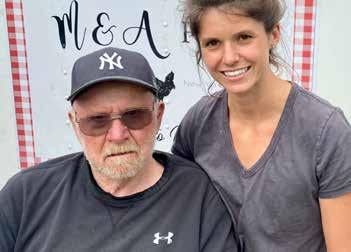
7 minute read
The multi-generational family behind The Yarn Shop at Foster Sheep Farm
Farming Across Generations
WRITTEN BY HIMANEE GUPTA-CARLSON PHOTOS BY JIM GUPTA-CARLSON
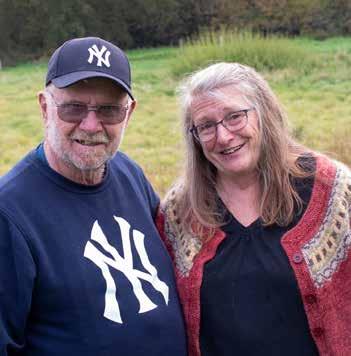
My husband Jim and I first visited Arnold Grant’s M&A Farm in 2013. As we drove out of Saratoga toward Washington County’s Durkeetown area, city streets gave way to lush, green rolling hills. It was mid-May and nature was bringing the landscape back to life. We arrived at Arnold’s farm and found him near the barn, sitting on a ledge. We were avid Saratoga Farmers Market shoppers and hopeful new farmers. We wanted to see where some of the meat we had been buying from local farmers was coming from. Arnold, then 77, showed us around. He introduced us first to his “beauties” – soft downy three-day-old chicks keeping warm under a heat lamp. The “uglies,” as he termed them, were next. They were fuller grown chickens and pigs, lovely in their own way and destined for their date with a butcher – “their one bad day.” “That one’s leaving us today,” Arnold said, gesturing to one of the pigs. “And that one,” pointing to another, “is next in line.” Then, it was time to see the cows. This was dairy land, but Arnold like many owners of smaller farms had begun transitioning out of raising cows for milk in 1990. He was now tending a Black Angus herd for beef. Their furred skins glistened in the sun as they looked up at us in a pickup truck. Arnold tried to hustle them toward us with a “ha Bessie, ha Bessie” chant. They ignored him. “Oh come on,” he implored the cows. “Don’t embarrass me. We have guests.” We took in the breathtaking beauty of the landscape as Arnold pointed out the house where he grew up in the 1930s and the home he built with his high school sweetheart Marilyn after their marriage. Arnold Grant is the eldest living member of a farming family that spans several generations. He, his daughter, and granddaughter are a piece of the patchwork community that has thrived in the Capitol Region for nearly nine decades. He and his wife Marilyn had two children.
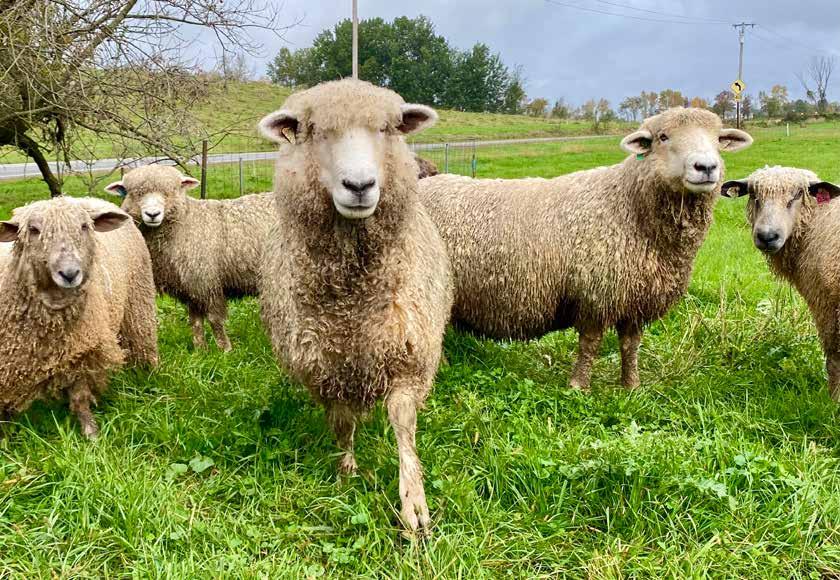
Their daughter Carole married Tom Foster when she was in her early 20s. Carole in turn gave birth to two children, one of who is Abby Henderson, wife of a schoolteacher, assistant to Arnold’s breakfast sandwich making operation at the Saratoga Farmers’ Market, agricultural savvy woman, and a mother of three. Farming runs deep in the blood of Arnold, Carole, and Abby. It knits them into a warm and strong community of farmers locally. The know-how that came through their multi-generation experiences gave them the skills – and the courage – to evolve with the times, and to change the meaning of what it means to be a farmer in the 21st century as the agricultural economy changes. As a child, Abby won a prize of three Romney ewes and a ram after entering an essay contest sponsored by a Romney association aimed at encouraging young people to raise sheep. Romney sheep are known for their high-quality wool, and Abby was excited to start something different from what her parents were doing, but still tied to the farm. Her Romneys came from Mary and Bob Pratt of the nearby Elihu Farm and started the herd that now produces wool that Carole spins and dyes into yarn, using homemade dyes she creates from flowers and plants grown at her farm. Abby remembers farm life as great. “My brother and I each had our own responsibilities around the farm and the house, too,” she says. “I wanted to be a schoolteacher but never in a way that would take me away from the farm.” Arnold’s family began farming in the 1700s. His whole life had been the farm. Well, with playing sports, too. “My father encouraged that,” Arnold recalled. “He’d come to my games and watch me play. Then, we’d come home together to milk the cows. There were always the farm chores.” Arnold was good at competitive sports and contemplated becoming a coach. But he also loved the farm. He finished high school in 1954 and married Marilyn in 1955. He began running the family farm a year later. Then, the children arrived, and with them the bills. He kept milking cows, but also began driving a school bus and working at a milk processing plant to help offset the costs. As a farmer, he had to be a businessman, too. Like her father, Carole grew up playing sports and doing farm chores. Her parents were dairy farmers throughout her childhood, selling the milk their cows produced to wholesalers. She began milking her father’s cows when she was in her early 20s, and then to supplement her income began milking for others. That led her to Tom.
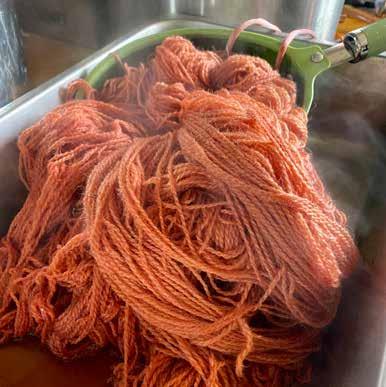
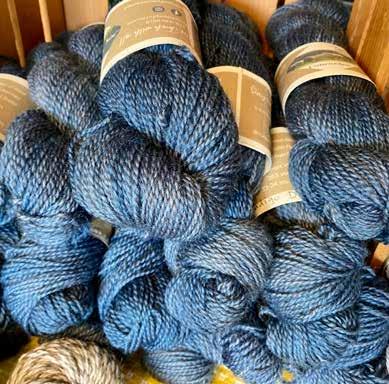
“I began working here [at the Foster farm] in March 1983,” she said. “By October, I was married.” Dairy comprises a significant chunk of the Capitol Region’s agricultural economy. But raising cows for milk grew harder to sustain. By the 1990s, the future of dairy for small farmers like herself and her father was uncertain. “They were saying at the time that if you’re going to stay in dairy, you’ve got to get big or get out,’” Carole recalled. Carole and Tom sold their herd to an Amish family and began raising sheep. For the Fosters, the shift was significant. Tom took an off-farm job while Carole raised their children and managed the animal care. “We went to Cornell as a family and looked at their sheep production program. At the time, they were lambing five times a year. Each sheep would lamb [give birth] three times in two years. It was very scheduled and meat production was the thing.” The family’s sheep herd grew quickly. Meanwhile, Arnold and Marilyn had shifted to raising cows for meat. In the past, the Grants and Fosters both had been suppliers of milk to wholesalers. As their production changed to locally raised meats, both Carole and Arnold found their way to the Saratoga Farmers’ Market and quickly fell into its vibe. “That was a big part of childhood for me,” Abby says. “I was here at the market every Saturday, and for a while on Wednesdays, too. We spent a lot of time preparing for it, and a lot of time here, as well.” “We started with beef because that’s what we were doing at the farm,” Arnold says. “Then, there was a need for eggs, so I got some chickens and began bringing eggs. Then, people wanted chicken as meat, and then pork.” Carole meanwhile took some of her wool to a wool pool in Vermont, where it could be spun into yarn for wholesale distribution. “One of the sorters there said our wool was too good to be sold into bulk,” she recalled. “What did I know?” She had some made into yarn, dyed it in her kitchen and began bringing it to market. Over time, Carole converted an unused house at the Foster farm into a store, which became a gathering place for knitters. Today, Arnold, 86, still lives in the house he built with Marilyn. Marilyn passed in 2015, and he has sold the farm. But he still comes to market with what has become one of his most popular products: Made-to-order breakfast sandwiches. He began offering the sandwiches in 2013, and at first sold 15 to 20 a week. Now, lines form as soon as the market opens and a crew of friends, family, and others expertly prepare the sandwiches on the spot while he sits at a stool and presides. Carole ran her knitting store until 2020 when safety concerns amid the COVID-19 pandemic caused her to close it down. She divides her time these days between dying wool to bring to farm festivals and working for a fiber mill locally. Abby married and started her family. Like her grandfather and father, her father-in-law was a dairy farmer. He, too, sold his cows and now grows grains for animal feed. His grandkids can be seen riding along with him as he combines. “We kind of roll with the punches,” she says. “We don’t plan out too far ahead.” When my husband and I visited Arnold’s farm in 2013, he had urged us to bring a few heavy bags with us. After we met his cows, he pointed to a pile of their manure and invited us to fill our bags to nourish the sandy soil at what came to be our small farm. We wanted to pay him, but he waved us off. He was, after all, a farmer at heart. SF










